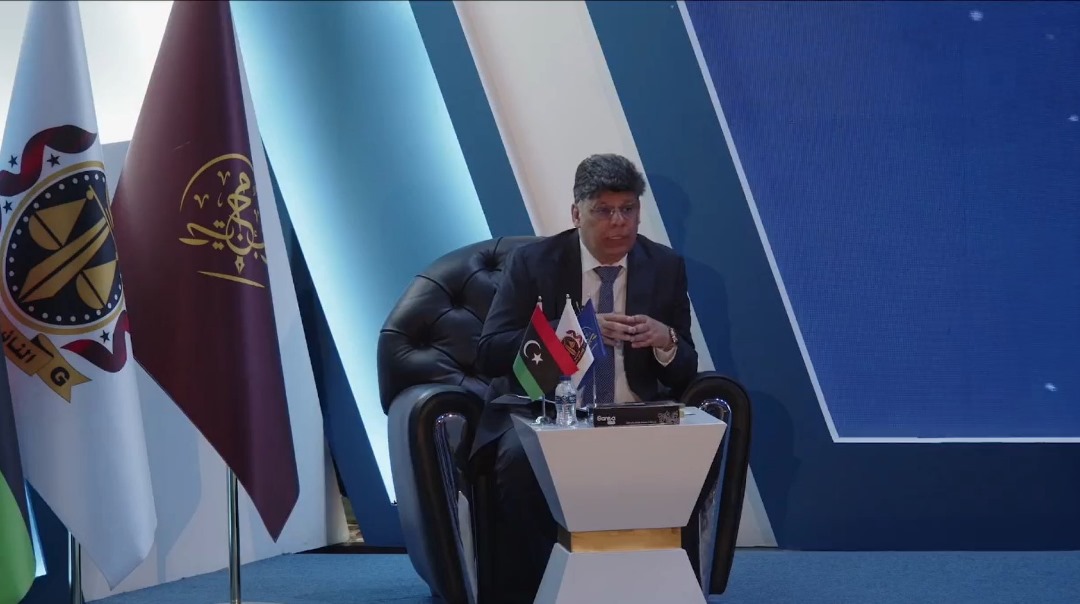Attorney General Al-Siddiq Al-Sour, during his meeting with new members of the Public Prosecution Office: Justice is timeless, and we must stand united to deter crime.
Pulbished on:
Tripoli, April 23, 2025 (LANA) – Attorney General Counselor Al-Siddiq Ahmed Al-Sour held an extensive meeting this morning, Wednesday, with the new members of the Public Prosecution Office. He addressed them at length, addressing a number of current challenges and tasks, and the importance of their role in strengthening the justice system and restoring the prestige of the state.
Counselor Al-Sour opened his remarks by emphasizing that respecting people and promptly resolving their complaints and grievances is essential and urgent, and is directly monitored by his office. He emphasized that members of the Public Prosecution Office must be vigilant and responsible, and be close to citizens and their circumstances, especially during this critical phase the country is experiencing.
In response to questions about the mechanisms for collecting cases in light of the weak or absent performance of some security agencies, the Attorney General explained that some police stations and security directorates have become unable to fulfill their role. Therefore, a "Judicial Control Unit" was established within the Attorney General's Office, which includes teams of police officers and personnel who carry out field collection operations.
He added that this unit is connected to all regions and conducts daily arrests, follow-ups, and investigations in Benghazi, Al-Bayda, Sabha, and all southern cities, in full coordination with prosecutors in those regions. He noted that this step has made a significant difference in the pursuit of organized crime and human trafficking.
The Attorney General highlighted the importance of the recently established digital judicial system, which allows the Director of the Public Prosecution to locate wanted persons simply by entering their names. This has greatly facilitated the collection process, even more so than in times when the country was more secure and stable.
He pointed out that these new operational mechanisms are "created by will and faith," and that the Public Prosecution now possesses advanced oversight and enforcement tools that enable its members to operate effectively despite the challenges.
Counselor Al-Sour confirmed that recent efforts have led to the implementation of more than 18,000 court rulings, a feat that had not been achieved even before 2011. He noted that some individuals against whom these rulings were issued have now voluntarily surrendered themselves as a result of their salaries being suspended, their being barred from entering the civil status system, or their civil rights being deprived under court rulings.
He explained that the current system has contributed to creating prestige for the Public Prosecution and has conveyed a clear message to everyone: crimes are not subject to a statute of limitations, and that justice will reach all those involved in murder, embezzlement, and corruption, regardless of the time frame.
The Attorney General addressed the issue of judgments in absentia, noting that, despite their humanitarian dimensions, they have achieved a high degree of deterrence. He said, "It is true that some people's cases have been pending for a long time, but these rulings remain in place and must be implemented."
Counselor Al-Sour revealed a major case involving the smuggling of 25 tons of drugs, involving suspects from various regions of Libya. These suspects are currently under investigation by the Public Prosecutor's Office, a move he described as "reflecting the extent of national cooperation in combating organized crime."
The Public Prosecutor addressed the criticism directed at the Public Prosecution by some local and international human rights organizations regarding the expansion of pretrial detention, emphasizing that this legal tool is only used within the framework stipulated by law, such as searching for evidence, the seriousness of the crime, or protecting the accused.
He explained that the current state of the country, in light of the absence of effective reform and rehabilitation institutions or its control by armed groups, sometimes forces the Public Prosecution to treat pretrial detention as a necessary, rather than arbitrary, option, especially when it concerns dangerous suspects or those with a criminal record.
He called on members of the Public Prosecution to carefully consider the situation when making critical decisions, such as release or detention, advising them to maintain constant communication with their immediate superiors in cases requiring a thorough security and legal assessment.
He emphasized that the electronic judicial system now provides an accurate database of suspects, which contributes to making decisions based on reliable information, not mere impressions or guesswork.
In a message of encouragement to the new members, the Attorney General emphasized: "You are now part of an institution that seeks to establish justice in the most difficult circumstances. We need you to work as a team, with one goal: to protect the law and serve the people."
...(LANA)...




